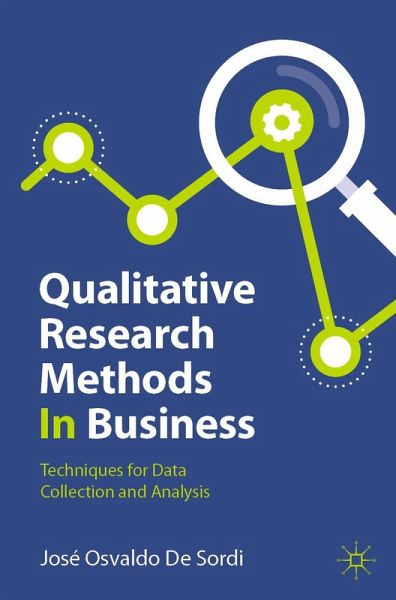
Qualitative Research Methods In Business (eBook, PDF)
Techniques for Data Collection and Analysis
Versandkostenfrei!
Sofort per Download lieferbar
36,95 €
inkl. MwSt.
Weitere Ausgaben:

PAYBACK Punkte
18 °P sammeln!
The challenges of developing research and generating scientific knowledge in environments that involve subjective aspects related to employees, customers, managers, leaders, inspectors, auditors, among other stakeholders in the business environment, can be overwhelming for students that are new to this type of inquiry. This textbook presents an integrated view of qualitative research strategies with data collection and analysis techniques.The book explores nine distinct research strategies, namely ethnography, phenomenology, grounded theory, case study, design science research, grounded design...
The challenges of developing research and generating scientific knowledge in environments that involve subjective aspects related to employees, customers, managers, leaders, inspectors, auditors, among other stakeholders in the business environment, can be overwhelming for students that are new to this type of inquiry. This textbook presents an integrated view of qualitative research strategies with data collection and analysis techniques.
The book explores nine distinct research strategies, namely ethnography, phenomenology, grounded theory, case study, design science research, grounded design, action research, participatory action research, and action-design research.
Related to data collection, this text discusses different types of qualitative interviews (focus groups, ethnographic, phenomenological, etc), as well as how to handle ethical issues that may arise.
In terms of analyzing data, the author describes various reading techniques, how to code the text, and how to use software to aid in the analysis.
The final section of the book explains how to write up the results of qualitative research, including article structure and selecting an outlet for publication.
Students will benefit from the plentiful examples and exercises that highlight the interweaving of data collection and analysis as well as concrete guidelines on engaging in qualitative research. At a time in which qualitative research is becoming more rigorous to meet the demands of the field, this textbook will prove a valuable resource for the next generation of business researchers.
The English translation of this book from its Portuguese original manuscript was done with the help of artificial intelligence (machine translation by the service provider DeepL.com). A subsequent human revision of the content was done by the author.
The book explores nine distinct research strategies, namely ethnography, phenomenology, grounded theory, case study, design science research, grounded design, action research, participatory action research, and action-design research.
Related to data collection, this text discusses different types of qualitative interviews (focus groups, ethnographic, phenomenological, etc), as well as how to handle ethical issues that may arise.
In terms of analyzing data, the author describes various reading techniques, how to code the text, and how to use software to aid in the analysis.
The final section of the book explains how to write up the results of qualitative research, including article structure and selecting an outlet for publication.
Students will benefit from the plentiful examples and exercises that highlight the interweaving of data collection and analysis as well as concrete guidelines on engaging in qualitative research. At a time in which qualitative research is becoming more rigorous to meet the demands of the field, this textbook will prove a valuable resource for the next generation of business researchers.
The English translation of this book from its Portuguese original manuscript was done with the help of artificial intelligence (machine translation by the service provider DeepL.com). A subsequent human revision of the content was done by the author.
Dieser Download kann aus rechtlichen Gründen nur mit Rechnungsadresse in A, B, BG, CY, CZ, D, DK, EW, E, FIN, F, GR, HR, H, IRL, I, LT, L, LR, M, NL, PL, P, R, S, SLO, SK ausgeliefert werden.












